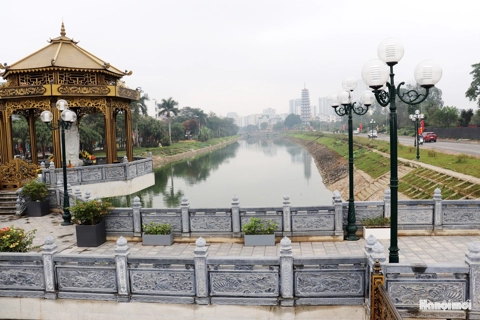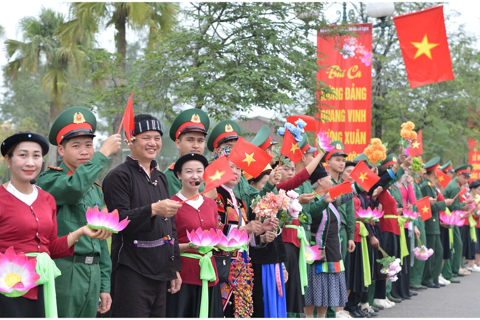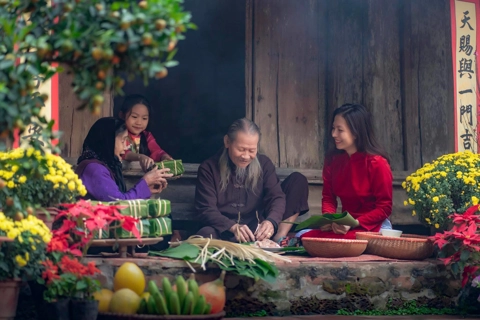Hanoi develops halal tourism offering
Renowned for its captivating charm and rich history, Hanoi has emerged on the global stage as an inclusive destination, with a special focus on the rapidly growing halal travel market.
THE HANOI TIMES — With the global halal tourism sector projected to soar to US$350 billion by 2030, Hanoi is stepping up efforts to position itself as a Muslim-friendly destination.
According to Tran Trung Hieu, Deputy Director of the Hanoi Department of Tourism, the city has rolled out policies and services tailored to the needs of Muslim travelers, with dedication to tapping into one of the fastest-growing segments in global travel.
Hieu was speaking at a conference titled “Developing Halal Tourism in Hanoi – Vietnam”, held last week during the Hanoi Tourism Festival 2025, brought together industry experts to share insights, practical experiences, and strategies for creating a welcoming space for Muslim visitors, not only in Hanoi but across Vietnam.
Halal travel: a growing market
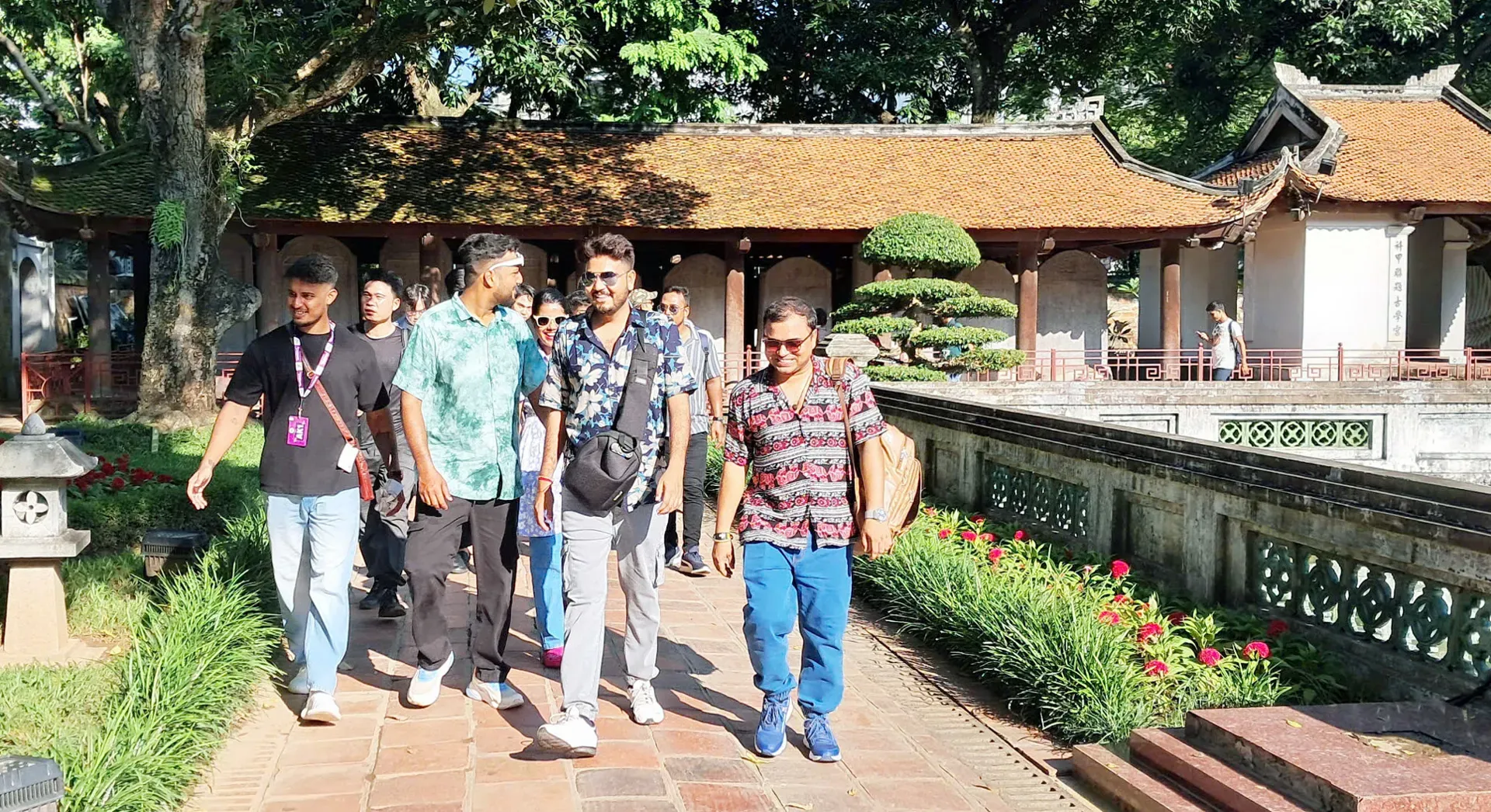
Foreign tourists at the Temple of Literature in Hanoi. Photo: Hoai Nam/ The Hanoi Times
According to Hieu, halal travelers, who are mainly from countries such as India, Bangladesh, Indonesia, Malaysia, Brunei, and the Middle East (including Turkey, Saudi Arabia, the UAE, Qatar, and Egypt), represent a significant market segment with high spending power.
"Their travel choices are not only guided by leisure, but also by strict adherence to religious and cultural rules, particularly with regard to food and prayer facilities," said Hieu.

UAE visitors in Vietnam. Photo: Nhip Song Kinh Te
Hanoi has already made commendable strides in accommodating Muslim visitors and fostering a welcoming environment that addresses the diverse demands of international tourists, including those with specific requirements.
Several prominent Hanoi hotels currently boast Halal certification, including the Melia Hanoi and the InterContinental Hanoi Landmark72. Many other four- and five-star properties also offer separate dining areas for Muslim guests, providing reassurance regarding their dietary requirements.
Those seeking spiritual solace can visit the historic Al-Noor Mosque, which was built in 1885 and is located at 12 Hang Luoc Street in Hoan Kiem District. There is also a growing number of restaurants that cater specifically to Muslim diners.
In 2024, Hanoi welcomed around 650,000 Muslim tourists, accounting for around 15% of the city's total international tourist arrivals. This upward trend continued in the first five months of 2025, with significant growth observed in key markets such as India, Malaysia, and Indonesia.
Creating halal-friendly ecosystem
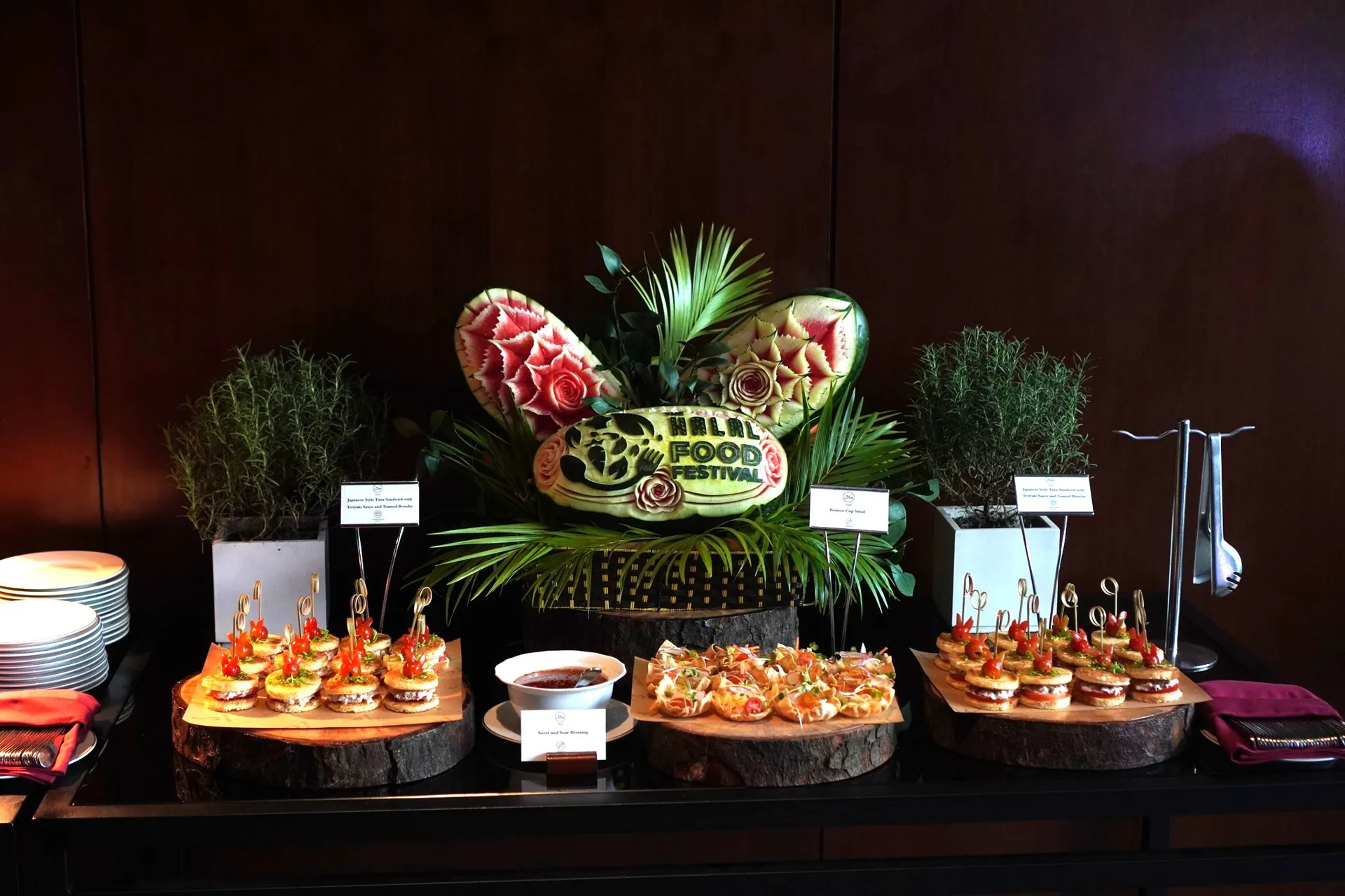
The Halal Food Festival is served by InterContinental Hanoi Landmark72. Photo courtesy of the hotel
While the potential is undeniable, the delegates and tourism experts at the aforementioned conference acknowledged the challenges involved in catering to this discerning market. Muslim tourists have very strict standards, particularly with regard to halal food, dedicated prayer spaces, and respect for Islamic cultural values and customs.
According to Nguyen Manh Than, Chairman of the Hanoi Tourism Association, there are currently hardly any Halal-certified facilities in Vietnam, particularly in Hanoi.
Tran Trung Hieu shared the same view, saying that the halal service system in the capital is still fragmented, with no consensus among regulators on the criteria for granting halal certification. Training staff in Islamic culture, developing specialized tourism products and connecting to the global halal market are also not keeping pace with potential.
To boost Hanoi’s appeal to Muslim tourists, experts agreed that a strategic approach is critical to creating a comprehensive halal-friendly ecosystem.
"This encompasses everything from accommodation and transport to entertainment venues designed with halal visitors in mind," said Nguyen Quy Phuong, Head of the Department of International Relations and Tourism Promotion at the Vietnam National Authority of Tourism.
He urged localities such as Hanoi to prioritize the construction of essential halal infrastructure, including prayer rooms and food outlets catering for Muslims, as well as promoting green and sustainable tourism products.
Meanwhile, Imam Abbas Mieu, Chairman of Halal Vietnam Co., Ltd, emphasized the need for Hanoi to develop a set of Halal guidelines specifically for the tourism and service sectors, organize regular training and consultancy courses, set up a center to promote Hanoi as a halal tourist destination, and establish Hanoi's presence on the global halal travel map.
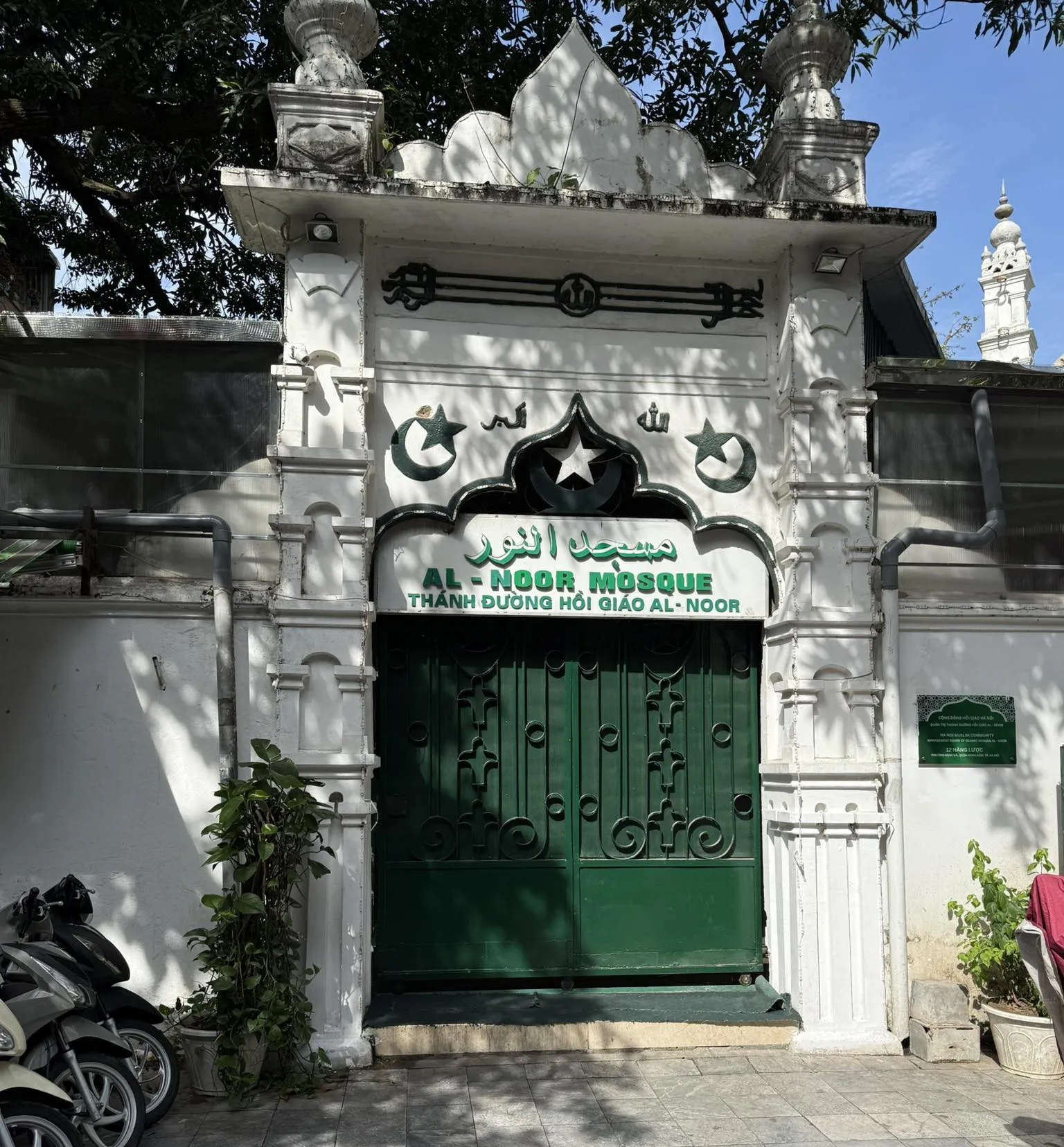
The historic Al-Noor Mosque, built in 1885 at 12 Hang Luoc Street in Hoan Kiem District, Hanoi. Photo: Quynh Nguyen
In response to the Imam’s suggestions, Deputy Director Hieu outlined specific solutions for Hanoi, including developing a network of halal restaurants and hotels, offering specialized tours and halal experiential agritourism, training staff to better understand Islamic culture and customs, and introducing policies to assist businesses in obtaining halal certification.
"Strengthening international cooperation with reputable halal organisations and boosting communication efforts to position Hanoi as a welcoming destination for Muslim tourists.
“We will strengthen international cooperation with reputable halal organisations and enhance communication efforts to position Hanoi as a welcoming destination for Muslim tourists," said Hieu.
We see the development of halal travel as a strategic opportunity to expand the market, diversify tourism products, and enhance Hanoi's competitiveness on the global tourism stage. The department will collaborate with other sectors to encourage investment in halal infrastructure and enhance service quality."
By taking these proactive steps and fostering a spirit of collaboration, Hanoi is doing more than just inviting Muslim travelers, it's creating a city where their spiritual and cultural expectations are met with warmth and respect, ensuring a truly memorable experience for everyone.





